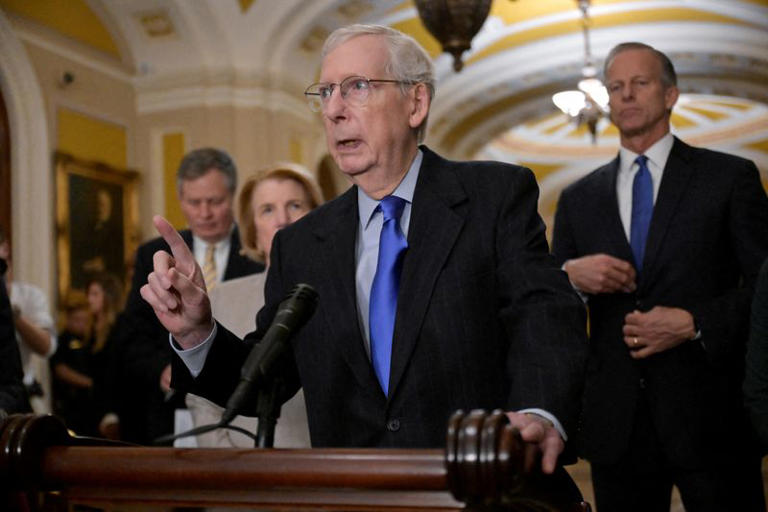Mitch McConnell, the prominent Republican leader in the U.S. Senate, has escalated the call for legislative action targeting TikTok, the widely popular short video app owned by China’s ByteDance. McConnell’s proposal centers on compelling ByteDance to divest TikTok, citing concerns over national security and the protection of American users, numbering around 170 million. He contends that such a move would align with established constitutional principles and serve as a crucial step in safeguarding the nation’s interests, particularly in light of what he perceives as a significant threat to American children and security posed by the app’s ownership.
The momentum behind legislative action on TikTok gained significant traction when the U.S. House of Representatives overwhelmingly passed a bill by a margin of 352-65. This legislation stipulates that ByteDance must divest TikTok’s U.S. assets within a prescribed timeframe, failing which the app would face a ban. The bipartisan support for this bill underscores the bipartisan concern regarding TikTok’s ownership and its potential implications for national security.
Democratic Leader Chuck Schumer has signaled openness to advancing TikTok-related legislation in the Senate, emphasizing the opportunity for bipartisan collaboration on this issue. While Schumer’s statement does not offer specific details on his stance regarding TikTok, it reflects a broader commitment to advancing legislative measures that address concerns surrounding the app’s ownership and operations.
© Thomson Reuters
Senate Commerce Committee Chair Maria Cantwell has also joined the chorus of voices calling for action on TikTok. She has expressed interest in convening a public hearing to explore potential regulatory measures aimed at curbing TikTok’s influence. Cantwell underscores the urgency of implementing safeguards to prevent foreign entities from engaging in activities that could jeopardize U.S. national security and the welfare of American citizens.
The debate surrounding TikTok’s fate has galvanized attention in Washington, with lawmakers facing pressure from constituents on both sides of the issue. While proponents of legislative intervention argue that TikTok poses significant national security risks, opponents contend that any attempt to ban the app would infringe upon the First Amendment rights of its vast user base in the United States.
TikTok, for its part, has vigorously defended its operations and user privacy practices. The company asserts that it has never shared U.S. user data with the Chinese government and has implemented robust measures to safeguard American data. TikTok emphasizes its substantial investments, exceeding $1.5 billion, in initiatives aimed at bolstering data protection and housing American user data within the United States.
Despite TikTok’s assurances, concerns persist among lawmakers and government officials regarding the potential vulnerabilities associated with the app’s ownership by a Chinese company. There is apprehension that China could leverage TikTok to access sensitive American user data or influence public opinion, raising broader questions about the intersection of technology, national security, and free speech in the digital age. As the debate unfolds, policymakers continue to grapple with finding a balance between safeguarding national interests and preserving the principles of innovation and open communication that underpin the digital landscape.
